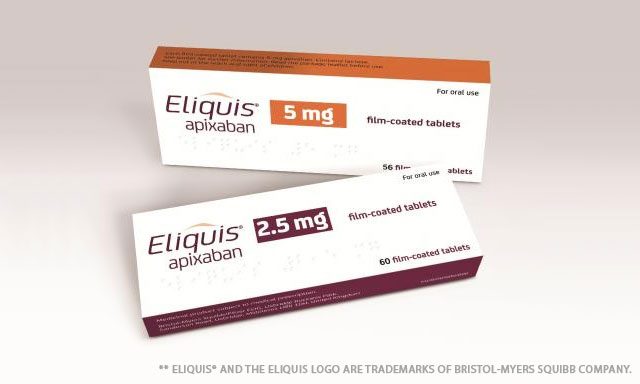
It seemed like an improvement when a new generation of blood thinners (which had an entirely different way of working) were approved for sale in the US. Unfortunately, there are very serious risks associated with the use of Eliquis®.
In 2012, the American Society of Hematology raised the question whether the release of Eliquis and Pradaxa would eliminate the need for Warfarin. Hopes rose quite high in the medical community when early reports showed new medications were more effective and safer than older choices.
A Serious Side Effect of Eliquis
It soon became common knowledge that these the new blood thinners did not have an antidote. This was unlike Warfarin and Heparin, whose effects could be reversed if necessary.
Patients taking Eliquis have been known to suffer severe and irreversible brain bleeds and internal bleeding events. Such events often resulted in tragic results.
At least three patients who formerly used Eliquis filed lawsuits that claimed the drug’s manufacturers did not adequately warn the public that the effects were irreversible. Two of those claims were filed by spouses who stated they lost their loved one due to severe bleeding incidents, including intracranial hemorrhages.
Concerns have also been raised about the potential for Eliquis to cause the following:
- Gastrointestinal bleeding
- Stroke
- Subdural hematoma
Bleeding in the Brain / Intracranial Hemorrhage
A publication by the American Stroke Association and experts from the University of Texas called intracranial hemorrhages the most-feared and dangerous complication of oral anticoagulants such as Eiquis. Their research showed that users of blood thinners were 10 times more likely to experience bleeding in the brain or within the skull. This could occur because of an external or internal event.
Cerebral hemorrhage is a subtype of intracranial hemorrhage. In this case, the blood flows within the brain itself. On the other hand, when blood flows within the skull, but not within the brain tissue, it is called extra axial.
Any collection of blood located outside the brain (but inside the skull) is called a subdural hematoma. Approximately 70 percent of all bleeding events among patients using blood thinners are actually intracerebral hematomas, which means there are of pools of blood at a location inside the brain. Some statistical reports indicate 60 percent of these hematomas are fatal.
When blood pours in to the space between the brain and the skull, it can cause an increase of pressure pushing down on brain tissue, thus crushing the tissue itself or causing a reduction in the oxygen supply. In extreme cases, the abnormal pressure increases can cause brain herniation; this means the flexible fat structures of the brain are squeezed, thus rendering them nonfunctional.
In the case of an aneurysm, the wall of a blood vessel expands outward and fills up like a balloon. When aneurysms rupture, blood enters the surrounding tissues, which leads to a condition called hypovolemia. This means that the amount of blood available to circulate is dramatically reduced.
At least one lawsuit has been filed relating to subarachnoid hemorrhage. In this type of extra axial hemorrhage, the blood fills a gap between two layers of meninges.
Eliquis Poses Greater Risk of G.I. Bleed Compared to Warfarin
A group of Dutch gastroenterologists attempted to compare more than 43 studies that explored the relationship between G.I. bleeds and the use of new anticoagulants in 2013. According to a meta-analysis of this study, patients who were using the new blood thinners, including Eliquis, were at a 45 percent higher risk of G.I. bleeds than those taking Warfarin.
This study showed the following:
- Patients taking Eliquis were 23 percent more likely to develop G.I bleeding.
- Patients taking Pradaxa were 58 percent more likely to develop G.I. bleeding.
If you or someone you love has suffered an internal bleeding event that was exacerbated by the use of Eliquis, you may want to discuss your legal options with a product liability lawyer in your area.
Every person’s situation is unique, so discuss the facts of your case with an attorney in your area who offers free consultations. These types of cases are handled one a no-win, no-fee basis, so you shouldn’t be asked to pay an attorney anything out of pocket to pursue a drug injury claim.







